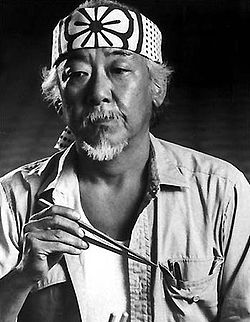A Faith That Works is an examination of the gospel as the tangible power of God to save. Many Christians would be hard pressed to articulate exactly in what way the gospel had affected them. The absence of demonstrable change has become so prevalent that we’ve actually found a biblical basis to explain it. This excerpt from what may or may not be chapter 2 of the book dismantles that basis to make way for the legitimate work of God.
I can think of no better evidence to support my case that the gospel of the western church has been rendered inert through mishandling than the prevalence of the belief that Paul meant to describe the normal Christian life in Romans 7. I can’t count the number of times a Christian has told me something like, “Yeah, we’re forgiven by grace but we’re still going to sin every day. I know I’m not as strong as Paul and he had things he couldn’t get over either. Just look at Romans 7.”
Really? Is that the best that the power of God can do? If faith in Christ left Paul “dead” and “wretched,” then what in the “H-E-double-hockey-sticks” did it do for him!?
Far from commiserating with faltering disciples, Paul wrote Romans 7 to depict the state of existence that the gospel saved him from. Through his attempts to conform to an external standard of righteousness, he became as “dead in transgressions and sins” as the pagan recipients of the Ephesian letter had been.
Compare the description from Ephesians 2:1-3 of their pre Christian state with his condition described in Romans 7:
● Paul and the Ephesians had both been dead in sin.
○ “As for you, you were dead in your transgressions and sins,” (Eph. 2:1)
○ “Once I was alive apart from the law; but when the commandment came, sin sprang to life and I died. I found that the very commandment that was intended to bring life actually brought death.” (Rom. 7:9-10)● Paul and the Ephesians had both been in bondage to evil desires.
○ “…in which you used to live when you followed the ways of this world and of the ruler of the kingdom of the air, the spirit who is now at work in those who are disobedient. All of us also lived among them at one time, gratifying the cravings of our flesh and following its desires and thoughts.” (Eph. 2:2-3a)
○ “We know that the law is spiritual; but I am unspiritual, sold as a slave to sin. I do not understand what I do. For what I want to do I do not do, but what I hate I do.” (Romans 7:14-15)● Paul and the Ephesians both had natures that were hostile to God.
○ “Like the rest, we were by nature deserving of wrath.” (Ephesians 2:3b)
○ “For I know that good itself does not dwell in me, that is, in my sinful nature. For I have the desire to do what is good, but I cannot carry it out. For I do not do the good I want to do, but the evil I do not want to do—this I keep on doing.” (Romans 7:18-19)If we agree that Ephesians 2:1-3 describes the lost state and then say that Romans 7 describes the common Christian experience, then we imply that the gospel produces no significant practical results. If we’ve come to identify a Romans 7 experience as the result of the gospel, then it’s no wonder there’s so little difference between the lives of Christians and nonbelievers. No wonder so few churchgoers evangelize. No wonder so many kids raised in church leave the faith.


